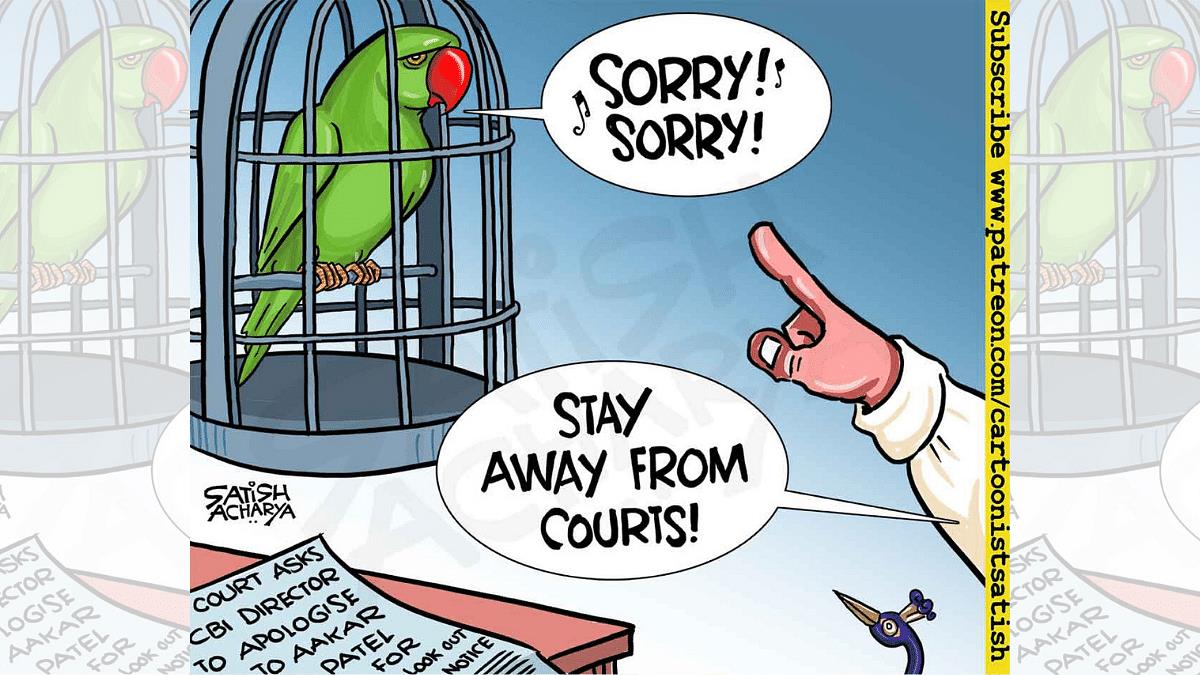
Election Commission's Degradation: From Watchdog To Caged Parrot
By K Raveendran
Indian epics tell us that aggression should never be turned against the weak is a lesson etched into the Mahabharata. Karna, remorseful after joining in the humiliation of Draupadi, admitted the shame of deploying power in the wrong direction. Draupadi in that moment represented not just women, but the principle of protecting the vulnerable against the powerful. The parallel with India's democracy today is striking. The Election Commission of India, entrusted with shielding the weaker side in an election, increasingly appears to direct its aggression where it is easiest-against the opposition-while tiptoeing around the government.
The recent controversy over Rahul Gandhi calling Prime Minister Narendra Modi a“vote chor” lays bare this imbalance. The remark was sharp and provocative, but hardly unusual in the rough-and-tumble of electioneering. Yet the Commission's reaction suggested greater concern about the Prime Minister's dignity than about whether the ruling party was using the full machinery of state to skew the contest. In a democracy, that is the wrong priority. A body designed to restrain the strong is instead policing the weak, and in doing so it risks its very legitimacy.
Aggression is not a problem for the Election Commission; it is, in fact, essential. India's elections are too large, too fractious, and too vulnerable to malpractice for a timid umpire. But aggression must be correctly directed. The ruling party, by definition, wields far greater power: it controls the police, the bureaucracy, the media arms of the state, and the purse strings of government. Left unchecked, these can turn a fair election into a tilted contest. The opposition, by contrast, has words, rallies, and slogans. To treat both as equal threats to fairness is a pretence at neutrality. To crack down harder on the weaker while sparing the stronger is a travesty.
See also How To Take Forward The Latest Improvement In India-China Bilateral Relations?The Commission once embodied the courage to get this right. Under T N Seshan, it became a fearsome force. He confronted governments head-on, enforced the Model Code of Conduct with unflinching discipline, and restored voter faith in the sanctity of the ballot. Seshan was theatrical, sometimes overbearing, even accused of autocracy. But his legacy endures because he tilted the balance back toward the citizen by restraining the government of the day. Politicians of all parties feared him. That fear was healthy; it meant the rules applied to everyone.
Today's Commission looks like the antithesis of that. It dithers when the government bends rules, looks away when state media becomes campaign machinery, and shrugs at communal dog-whistles from the ruling benches. But the moment an opposition leader crosses the line of rhetoric, it bristles with sudden energy. This inversion is not impartiality. It is weakness dressed up as fairness. A referee who scolds the underdog while ignoring fouls by the champion is not neutral-he is complicit.
The damage is not abstract. Public faith in elections is the cornerstone of democracy. If voters begin to believe that the game is fixed, their trust in the ballot erodes. And when that trust collapses, democracy itself becomes hollow ritual. The Commission cannot afford to appear pliant, for even the perception of bias corrodes confidence as surely as bias itself. Its independence was written into the Constitution for precisely this reason: to counterbalance the government's overwhelming advantages and ensure every citizen's vote still counts equally.
Defenders say the Commission is only applying the rules evenly. But this is a false symmetry. A government's misuse of state resources, or its saturation of the public sphere with its leader's image, is far more damaging to fairness than an opposition leader's insult. To pretend otherwise is to confuse civility with equity. Real fairness demands context, and context demands the stronger side be restrained more than the weaker. That is the Commission's dharma.
See also ED Probe Into Anil Ambani Group Is Creating Loathsome SensationThe Mahabharata offers a grim warning here. Draupadi's humiliation was not only in being disrobed but in the silence of those who should have defended her. The elders of the court looked away. Karna himself only realized too late that he had directed aggression against the wrong side. The Election Commission faces its own test of dharma today. Its silence in the face of government excesses, combined with its quickness to admonish the opposition, places it closer to Hastinapura's mute courtiers than to the fearless guardians the Constitution envisioned.
India's democracy has survived crises because its institutions occasionally chose courage. The judiciary, the press, and once the Election Commission itself, have stood firm against abuse of power. Each time, that courage kept the republic alive. If today's Commission shrinks from that responsibility, it will be remembered not as the protector of democracy but as another institution that crumbled under pressure.
Aggression is not the problem. Misplaced aggression is. By directing its strength against the opposition while bowing to the government, the Commission repeats Karna's folly: valour wasted against the vulnerable while power goes unchallenged. Karna's remorse came too late. The Commission still has time. To act otherwise is not neutrality-it is betrayal. (IPA Service )
Legal Disclaimer:
MENAFN provides the
information “as is” without warranty of any kind. We do not accept
any responsibility or liability for the accuracy, content, images,
videos, licenses, completeness, legality, or reliability of the information
contained in this article. If you have any complaints or copyright
issues related to this article, kindly contact the provider above.


















Comments
No comment